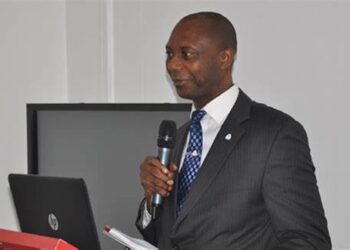The Federal Government has said that 363,000 companies doing business in Nigeria have never paid tax.
Minister of Finance, Mrs. Kemi Adeosun, made this disclosure on Friday, at a discussion panel on “Sub-Saharan Africa: Just a Rough Patch” on the side-line of the ongoing 2016 spring meetings of the IMF-World Bank in Washington DC.
Adeosun said the Federal Government’s approach was aimed at improving the efficiency of tax collection and broadening the tax base.
She said there were so much revenue achievable from taxation to keep the economy running on a sustainable level without focusing on revenue from oil.
According to the Minister, the economy currently records only 5 per cent government revenue to GDP but now targeting 10 per cent, and that the level of compliance in VAT revenue collection was 12 per cent.
Adeosun said “there are still low-hanging fruits in revenue collection. We are using technology, we are using cashless platforms and we are very serious about hitting those targets. Are there risks, yes, are we aware of them, are we trying to mitigate them in our action plan, absolutely yes.”
“We are using technology to enhance collection, linking up databases from diverse government agencies, auto debits of VAT from corporate entities and government contractors and the rollout of Biometric Verification Number (BVN) across bank account holders. We have also ensured that FIRS staff receive increased incentive pay for delivery on targets,” she said.
For the Minister, “this framework for the future will tackle our problems through three critical areas, namely fiscal discipline, targeted investment, diversification of the Economy.”
“We will guard against wastage and leakages within the system, strengthening institutions weakened over the years through corruption, inefficiency and in some cases simple negligence.
She said “We have lacked sufficient and adequate systems for monitoring how funds are being utilized nor did we embed the controls to arrest the leakages.”
“Therefore, along with the transformative capital investment we are undertaking, we will concurrently develop the much needed systems and controls for monitoring, tracking and ultimately optimizing the investments we intend to make,”
“The Federal Government has launched offensive against corruption. As part of our fiscal housekeeping, we have introduced programmes designed to audit and rationalize personnel related expenditure, which accounts for over 40 per cent of total government expenditure, reduce overheads, increase expenditure efficiency, and consolidate extra-budgetary revenues.”

![[Revealed] 363,000 Companies Never Paid Any Tax In Nigeria – Adeosun](https://nairametrics.com/wp-content/uploads/2016/04/Kemi-Adeosun-Minister.jpg)















